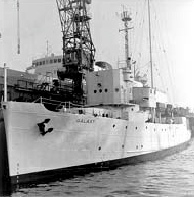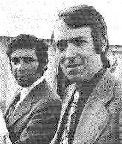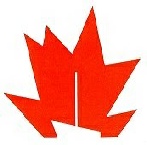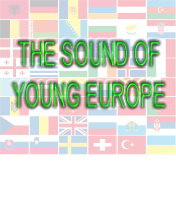© 2014-


RNI - History

Throughout the summer of 1968 plans were announced to launch West Germany's first offshore station on 1st November 1968. using the former Radio London ship MV Galaxy (which was then located in Hamburg). The new station, originally to be known as Radio Gloria, but later Radio Nordsee, was to be anchored off the West German coast, near Helgland. The project was being backed by two Swiss advertising men -
In common with so many offshore projects, however, the announced starting date came and went without anything being heard on the air. Meanwhile, on 2nd July 1969, the West German Government hurriedly introduced legislation to outlaw any offshore broadcaster which anchored off its coast and prohibit West German citizens from working for or advertising on such a station. In January 1969 Emil Luthi decided to withdraw his financial support for the . Later in the year when the German legislation came into effect Norbert Gschwendt also withdrew his financial backing and the whole project collapsed.
Two Swiss engineers who had been engaged to maintain radio equipment on board the Galaxy decided later in 1969 that they would launch an offshore station of their own. Erwin Meister and Edwin Bollier, purchased a ship, the Bjarkoy and re-
engineers who had been engaged to maintain radio equipment on board the Galaxy decided later in 1969 that they would launch an offshore station of their own. Erwin Meister and Edwin Bollier, purchased a ship, the Bjarkoy and re-
Not long after work had started on converting this ship it was decided that a much larger vessel would be more suitable so they acquired an ex-
Mebo II was transformed into the most luxurious offshore radio station ever -
1970
Mebo II left Rotterdam on 22nd January 1970 and sailed to an anchorage off Noordwijk on the Dutch coast. Test transmissions for the new offshore station -
The immediate impact of RNI's arrival off the coast of Holland was enormous and it was to produce a fundamental change in the relationship between the Dutch authorities and offshore broadcasters. In fact the launch of RNI, although welcomed and enjoyed at the time by so many listeners throughout Europe, and particularly in Britain, was to prove a disastrous turning point in the history of European offshore radio.
Some Dutch newspapers started a campaign almost immediately for the Government to outlaw offshore radio stations, the feeling was that the arrival of RNI, even though it did not at that time broadcast any programmes in Dutch, was a threat to the broadcasting system of Holland. Radio Veronica was tolerated by the press and the authorities, but this more powerful new arrival was considered a far more serious potential threat.
The Dutch PTT reported almost as soon as transmissions started from RNI that complaints had been received about the station's broadcasts on 186m causing interference to a station in Italy and the shortwave transmissions interfering with the Norwegian Navy distress frequencies. On 4th March 1970 the Dutch Pilot Service reported that RNI medium wave transmissions were interfering with their communications on 187m .
Just less than a month after starting regular programmes the Mebo II left her anchorage off the Dutch coast on 23rd March 1970 and headed towards England, anchoring off Clacton on Sea, Essex the following morning. With all the allegations of interference and bad publicity in the Dutch press Meister and Bollier thought that by repositioning their station off the British coast it would have a better chance of commercial success. Unfortunately for RNI this was not the case because the British authorities were to prove even more determined than their Dutch counterparts to silence the powerful new offshore station.

The former Radio London ship, Galaxy, in Hamburg awaiting refurbishment for use by the planned Radio Nordsee, 1968

Click on picture to enlarge
ITN News at Ten report on the launch of RNI, February 1970
RNI first test transmission

First English language test transmission on medium wave

History
Key Dates
Ship and Location
Technical
Staff
Programmes






The People
29th March 1970
Treasure Chest


For more information about the early history of RNI and the Gloria Project visit
Special Exhibition on the Ground Floor




Back to Netherlands/Belgium Gallery





Back to Britain Gallery


Back to RNI
